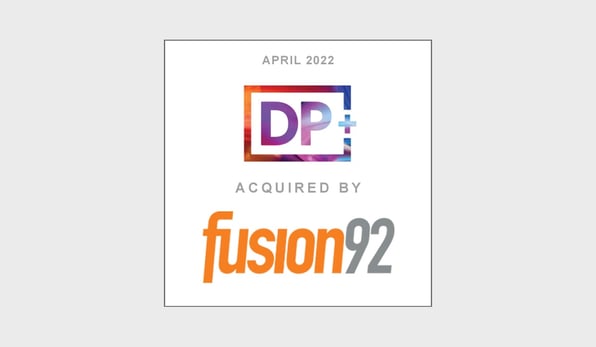Is SBA funding available now for business ownership transitions? According to these SBA lenders, Yes! And maybe with some more favorable SBA financing terms than you’re expecting…
Click here for your complimentary copy: TL SBA Lending White Paper
SBA Financing for Ownership Transitions in the COVID Era
Before the pandemic struck, maybe you were thinking that you wanted to explore selling your business. Or buying another one to add on. Or transferring ownership to a partner or key employees.
Or maybe you weren’t thinking that then, but you are now.
Whatever the situation, as soon as these thoughts come onto the radar screen, about the first question that pops into anyone’s mind is, “How will I (or they) pay for it?” In times like these, that question is especially acute. Are funding sources available? Are banks still lending? Is there any SBA money left?
As the M&A and exit planning advisor for more than 130 businesses across the country over the past decade, we, at TobinLeff, were wondering the same things. Especially for the active clients we have currently looking to sell or buy, we needed answers. So, we went directly to the source.
Over the past couple of weeks, I have been talking with SBA lenders to hear from them whether SBA financing is available and how terms may have changed. I identified lenders who are with banks that are big enough to be active players, but still focused enough to care about these kinds of deals. Specifically, what you are about to read is the distillation of the knowledge and on-the-ground experience of:
- Ms. Lindsay Cost
Vice President, SBA Product Specialist – Senior
The Huntington National Bank - Mr. Adam Huber
Vice President, SBA Development Officer
Radius Bank - Mr. Adam Whitaker
Vice President, SBA Business Development Officer
F.N.B. Corporation Small Business Finance Team
How would you describe the availability of SBA financing for purchases of privately held businesses in the $1-20 million range right now?
- Funding will be available, but this will vary from bank to bank.
- Loan applications will be scrutinized more tightly.
- Bankers will want to know how acquirers/borrowers will handle the impacts of the pandemic on the business.
- Required down payments may increase from 10% to 15% or 20%.
Do you anticipate any difference in loan availability by business type – professional services, retail, restaurant, manufacturing, etc.?
- One interviewed banker was not too concerned about industry as long as underwriting financial metrics are met; however, the other two felt that the business type will be a more important factor.
- Some of the more obviously impacted businesses – restaurants, hotels, nursing and long-term care facilities, retail – will be assessed more conservatively.
- Professional services like medical, dental, and accounting should not see much impact; marketing and related firms may be looked at a bit more closely to evaluate their client base and sustainability.
“Businesses that need to modify operations for the COVID environment like, say, a fast food restaurant, will require more detail and validation of how they are adapting for safety. Others, such as a business uniform seller, won’t see much difference.”
— Adam Whitaker
Do you see any difference in SBA financing external deals vs. sales to internal buyers?
- Not much difference here, with a slight favoring of internal deals due to buyer’s understanding of business.
- One responded that partner buy-outs may be looked at a little more closely to reassure the bank that the departing partner isn’t trying to cash out of a collapsing business.
How are you assessing business loan value in the current climate?
- FNB: Still primarily relying on historic financials, but will be requesting interim monthly statements for the current year.
- If there has been a significant decrease, loan closing would likely be contingent upon some reasonable restoration of performance levels.
- Huntington: 3x EBITDA based on last 3 years. Selling firm must demonstrate up to 50% of pre-COVID revenues for underwriting, and 75% for closing.
- Radius: Will still go off 3-5x discretionary earnings for last 3-5 years, but also will be taking into account the industry. Higher end prices will require more seller financing. Cash flow projections will look at recent numbers, but also will consider potential for rebound.
“We will continually re-evaluate the needs of the closely held firms in our region as we respond dynamically to loan requests during this period.”
— Lindsay Cost
Are you making any changes to your borrower requirements, such as credit rating, collateral, personal guarantees, etc.?
- The general consensus is that borrower underwriting requirements will not significantly change.
- One banker indicated they may start asking for pledging of principal residence even by borrowers of less than 25% of the total loan amount.
- One said that the requirements would not increase, but that there would not be many exceptions made for reducing standards on an individual basis.
Is it taking longer to get SBA financing?
- With PPP fully behind us, it was felt that the process may be extended by anywhere from 10 days to 3 weeks, but generally not much delay.
Are you looking for deals?
- Yes! Absolutely!
What else should borrowers know right now?
- “Receivables will be looked at closely for collectability.”
- The SBA has loosened up the limits for its “richness” test. In other words, SBA lending will be more available than it had been to borrowers who have significant other liquid assets or funding sources.
- “Life insurance requirements for borrowers will be more strictly enforced.”
- Lenders will be diving more deeply into borrowers’ backgrounds and credentials for running the acquired business.
- “In projections and business plans, borrowers need to account for their ability to afford and implement the use of adequate Personal Protective Equipment.”
“Working with a professional advisor like TobinLeff will enhance the SBA application process.”
— Adam Huber
WHAT DOES ALL OF THIS MEAN FOR YOU?
It may seem a bit counterintuitive, but in many ways, right now is an ideal time to be thinking about ownership transitions. If your agency is strong and you’re looking to grow, there are sellers ready to move on. Or, if “move on” describes your thinking right now, buyers are looking for deals.
As you can see, SBA financing is available, and it’s very attractive. Rates are really low. And, best of all, there’s an amazing additional incentive under current SBA guidelines….
For loans that close and fund before September 27, the SBA is going to cover the first six months of principal and interest payments. If you think about the standard SBA loan having a 10 year amortization, this means that 5% of the repayment is being covered. Especially for anyone considering an internal sale to partner(s) and/or key employees, it makes huge sense to move ahead now and take advantage of this offer. The SBA will effectively be refunding a big chunk of the required down-payment through this program. This can turn an otherwise great opportunity for your employees into a once in a lifetime opportunity.
Finally, while SBA regulations are standard, there is great flexibility in how they are applied by individual banks. If you’re looking for funding and don’t have a strong banking partner already in place, shop around to get the best deal. And remember, if one bank turns a deal down, that doesn’t mean that there may not be another that will do it.
If you want to learn more about the current market for M&A, check out the TobinLeff M&A Podcast or view our other resources. Or, give yourself a break from social isolation and email me at sleff@tobinleff.com or give me a call at 412/515-0120, ext. 102. I’m always happy to chat.



